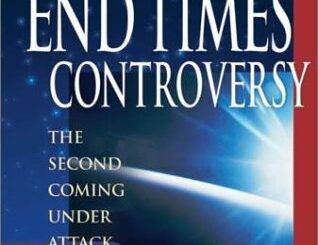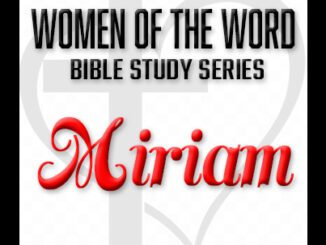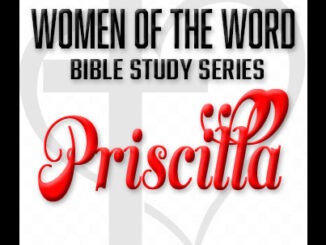Scripture References:
Genesis 29; Genesis 30; Genesis 31; Genesis 33:1-2; Genesis 33:7; Genesis 35:16-26; Genesis 46:19; Genesis 46:22; Genesis 46:25; Genesis 48:7; Ruth 4:11, 1 Samuel 10:2; Jeremiah 31:15; Matthew 2:18
Name Meaning:
ewe, but meant as a title of endearment such as we use “lamb” now – this is the first reference to a person having an animal name
Introduction:
The story of Rachel is one of the first recorded love stories in the BIble and one that pulls on our heart strings as romance loving women. But Rachel’s life is also one of sorrow and trouble, full of many lessons we can learn and things we should avoid. Let’s explore this woman of the Bible and learn from her life.
Lesson:
We first meet Rachel in Genesis 29. We learn she is the youngest daughter of Laban, and thus a cousin to Jacob. She was a beautiful woman according to the Scriptures, very pleasant to look upon. It was love at first sight when Jacob met her at the well that fateful day.
Rachel and Jacob’s story is just one love story in the Bible. It is also interesting to note, this was the first time courtship was mentioned. Jacob fell in love with Rachel immediately. And his love for her was so strong that he was willing to work for her father so that he might take her as his bride. He served for seven years only to be given her older sister Leah as a bride instead, disguising her by the night and most likely veils. Jacob took her to his tent and lay with her. How this must have hurt Jacob the next morning when he discovered not the one he loved but rather her sister instead. Yet his love for Rachel was so strong that he served yet another seven years until he was able to take her into his tents. too.
What must it have been like to have a man love you so intensely that he would work so hard for your hand? How might you have felt in the same situation? The Bible is silent as to Rachel’s thoughts and feelings. The romantic in us cries that she loved him as passionately as he loved her, yet we are not certain that this is the case.
Love is not everything though. Her sister Leah bore Jacob son after son, but Rachel was barren. Her pain at being barren became a thorn in her side and her jealousy of Leah manifested itself in her words that we read in Genesis. There is no hiding her jealousy at her sister’s fruitfulness in childbirth. Therefore, she gives her servant to her husband to bear children for her. Yet her sorrows do not end when her servant bears sons. She raises these children as her own and Rachel still remains childless.
Rachel’s own sorrow next manifests itself as anger. We see her crying to Jacob to give her children. It is as if she is blaming him for her lack of fertility. His response is to point her to God to provide, not to him. Despite her crying to her husband rather than to God, He still loved her and in due time blessed her with a child, Joseph.
Rachel’s story does not end there, though. At one point God tells Jacob it is time to move. Jacob’s family, herds, etc. all prepare for their exodus from Laban’s lands. They set out on their way only to be stopped by Laban who accuses them of stealing what is rightfully his. He demanded that Jacob allow him to search for his belongings.
It is discovered that Rachel has stolen her father’s idols. Not only did she steal the idols, but she also defiled them. She was menstruating and was considered unclean. Anything she touched became unclean. She had hidden the idols in a bag on which she sat. Did she doubt God’s provision for them, instead putting her trust in the traditional idols of her father? It appeared that she lacked a faith in God – first crying to her husband to give her children rather than turning to God and second stealing idols from her father to carry into foreign lands.
Yet despite her apparent lack of faith, God heard Rachel’s cries and opened her womb, though her cries were not directed to Him. Jacob’s beloved Joseph was born and favored above all other sons. A second son was born, but this birth, one she longed for, was the one that claimed her life. She named him Benoni, child of sorrows, and breathed her last breath. Jacob named the child Benjamin instead. Rachel was the first recorded death in the Bible that was due to childbirth. This is recorded in Genesis 35:16.
Rachel was not to be buried alongside her husband since they had not yet set up a permanent home. She WAS the first mention in the Bible of having something placed over her grave as a marker – the first headstone. Though she was the one Jacob loved above all else, she was not the woman mentioned in the lineage of Jesus. She was not the mother of great rulers (though Joseph was very influential, his line of successors were not established as Judah’s were), nor was she the wife laid to rest next to her husband for eternity. Hers was truly a life of sorrow.
There is much we can learn from Rachel’s life and actions. We can see that though Rachel had beauty, she did not have contentment – SOMETHING was missing. God could have filled that void perfectly, had she sought Him. Beauty does not equal happiness. There is more to life than just beauty. We should not be caught up in how we look, or how society says we should look.
We can see marital love through the story of Jacob and Rachel. Yet we can also see how love is not the answer to all of our problems. Our hope should be in God, not in our spouse.
Conclusion
Despite all of the sorrows, the lack of faith, the lack of trust, etc. God still loved Rachel and still gave her what her heart desired most – a family of her own. Imagine how much more He could have blessed her had she simply allowed Him… Are you trusting God and putting your faith in Him?
Learn from Rachel and her life. Seek God, trust Him, and let His love pour down on you through others. You are already a beauty beyond your understanding – let His love make you all the more beautiful and desirable as you seek to become a woman of God.








Be the first to comment